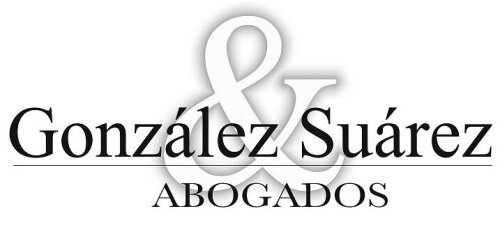Best Bankruptcy Lawyers in Palencia
Share your needs with us, get contacted by law firms.
Free. Takes 2 min.
List of the best lawyers in Palencia, Spain
About Bankruptcy Law in Palencia, Spain
Bankruptcy, known as "concurso de acreedores" in Spain, is a legal process designed to address situations of insolvency, where an individual or business cannot meet their financial obligations. In Palencia, as in the rest of Spain, bankruptcy law is primarily governed by national legislation but is applied and overseen by local courts and professionals within the province. The aim is to ensure fair treatment of creditors while offering debtors a structured pathway towards resolving their financial difficulties, either through restructuring agreements or liquidation of assets.
Why You May Need a Lawyer
Navigating bankruptcy proceedings is a complex legal process that involves strict deadlines, extensive paperwork, and potential court appearances. Hiring a lawyer in Palencia can be highly beneficial in situations such as:
- Businesses facing mounting debts and risk of insolvency
- Individuals unable to meet financial obligations due to unemployment, divorce, or unexpected expenses
- Companies seeking to renegotiate debts or create payment plans with creditors
- Creditors wishing to protect their rights and recover owed amounts
- Any party requiring guidance on legal implications and future financial impacts
A lawyer will assess your case, ensure compliance with local regulations, represent your interests in court, and negotiate with creditors, which greatly increases the chances of a favorable outcome.
Local Laws Overview
Bankruptcy in Palencia is governed by Spanish national laws, chiefly the Real Decreto Legislativo 1/2020, which consolidates and updates the country's Insolvency Law. Key elements relevant to Palencia include:
- Jurisdiction: Local courts in Palencia handle bankruptcy cases, with specialized judges overseeing proceedings.
- Voluntary vs. Involuntary Bankruptcy: Debtors can file for bankruptcy voluntarily when insolvency is anticipated or actual; creditors can petition the court if the debtor fails to pay debts as they fall due.
- Stay of Proceedings: Upon acceptance of a bankruptcy petition, most collection efforts and lawsuits against the debtor are automatically suspended.
- Asset Liquidation or Restructuring: Depending on the case, the process may involve restructuring debts or selling assets to pay creditors.
- Second Chance Law: Individuals who satisfy certain requirements may be eligible for a full discharge of remaining unsecured debts.
- Communication and Documentation: Proper and timely communication with the court and creditors is crucial, with strict documentation standards.
It is essential for anyone considering or facing bankruptcy in Palencia to understand the legal framework and seek local professional advice to navigate these requirements effectively.
Frequently Asked Questions
What types of bankruptcy exist in Spain?
There are generally two types: voluntary bankruptcy, initiated by the debtor, and involuntary bankruptcy, initiated by creditors. Both types are processed through the local courts in Palencia.
Who can file for bankruptcy in Palencia?
Both individuals and legal entities (businesses, associations) can file for bankruptcy if they are in a state of current or imminent insolvency.
What happens to my assets during bankruptcy?
Depending on the case, your assets may be liquidated to pay off creditors, or you may receive approval to follow a payment plan. Certain essential assets may be protected from liquidation.
Will bankruptcy affect my credit and business future?
Yes, bankruptcy typically impacts your credit rating and can affect your ability to obtain future credit or run a business for a period of time. The extent varies depending on the case and subsequent financial behavior.
Can I keep my home or primary residence?
This depends on various factors, such as the value of the home and the amount of debt. Spanish law does provide some protections, but the home may be included in the assets to be liquidated if necessary to pay creditors.
How long does the bankruptcy process take?
The duration varies widely. Simple cases may take a few months, while complex cases involving multiple creditors or large debts can take several years to resolve.
What is the Second Chance Law (Ley de Segunda Oportunidad)?
This law allows, under certain conditions, individuals to be discharged from remaining debts after the liquidation of assets, providing a fresh start.
Can a creditor oppose the bankruptcy process?
Yes, creditors can challenge the debtor's petition and provide evidence against the claims or contest specific aspects of the petition during court proceedings.
Are all debts included in bankruptcy?
Not all debts are dischargeable. Debts for alimony, public law obligations (such as certain taxes or social security), and criminal fines are generally excluded.
Do I need to appear in court?
While your lawyer will handle most court appearances, your personal attendance may be required for certain hearings or to provide testimony, especially if you are an individual debtor.
Additional Resources
Those seeking further information or assistance on bankruptcy matters in Palencia can consult the following resources:
- Provincial Court of Palencia (Juzgado de lo Mercantil), which oversees bankruptcy cases
- Official College of Lawyers of Palencia (Ilustre Colegio de Abogados de Palencia) for referrals and legal support
- Municipal Consumer Information Offices (OMIC) for basic legal guidance
- Local legal aid offices for those who qualify for free legal assistance
- Chambers of Commerce and business associations for guidance specific to companies
Next Steps
If you are considering bankruptcy or need advice on debt management in Palencia, it is important to act quickly. Start by gathering all relevant financial and legal documents, make a detailed list of your debts and assets, and consult a qualified bankruptcy lawyer with experience in local procedures. A local lawyer can assess your options, guide you through each step of the process, handle negotiations with creditors, and represent you in court if necessary. Early and informed legal advice can maximize your chances of a positive resolution and help you achieve a fresh financial start.
Lawzana helps you find the best lawyers and law firms in Palencia through a curated and pre-screened list of qualified legal professionals. Our platform offers rankings and detailed profiles of attorneys and law firms, allowing you to compare based on practice areas, including Bankruptcy, experience, and client feedback.
Each profile includes a description of the firm's areas of practice, client reviews, team members and partners, year of establishment, spoken languages, office locations, contact information, social media presence, and any published articles or resources. Most firms on our platform speak English and are experienced in both local and international legal matters.
Get a quote from top-rated law firms in Palencia, Spain — quickly, securely, and without unnecessary hassle.
Disclaimer:
The information provided on this page is for general informational purposes only and does not constitute legal advice. While we strive to ensure the accuracy and relevance of the content, legal information may change over time, and interpretations of the law can vary. You should always consult with a qualified legal professional for advice specific to your situation.
We disclaim all liability for actions taken or not taken based on the content of this page. If you believe any information is incorrect or outdated, please contact us, and we will review and update it where appropriate.










